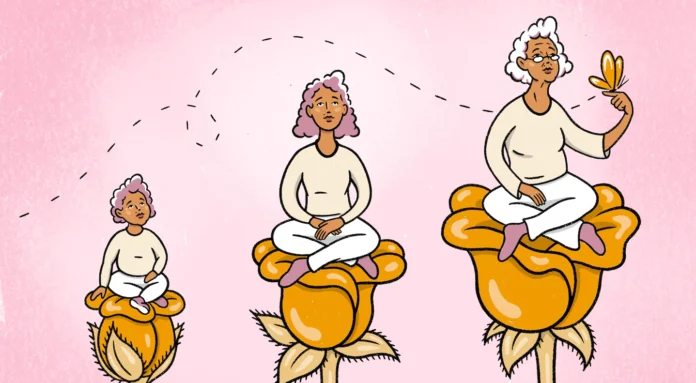By Frangiska Mylona,
Another aging hypothesis is related with the oxidative stress that is mediated by the free-radical injury. In normal cells, only a small amount of the total oxygen consumption will generate reactive oxygen species. This phenomenon is interlinked with the metabolic rate of the organism. As it is known, when the person ages, the metabolic rate slows down and reactive oxygen species are produced without being easily eliminated. As a result, they accumulate and result to progressive mitochondrial injury and successive cell damage.
By a physiological standpoint, aging is also linked with hormonal decline, defective immune function against microbes along with other injurious environmental agents as well as the failure of the cells to renew, which is very detrimental for the non-diving cells like neurons.
It is interesting enough to mention that there are hereditary diseases associated with an accelerated aging, like progeria and the Werner’s disease, which is an autosomal recessive disease manifesting with premature aging, atherosclerosis and increased risk for developing various types of cancers. Lastly, it is understood that aging affects every part of the human body since it affects all of the human cells. However, in some systems (and organs), the changes, due to aging, are more prominent.
These include the cardiovascular system as well as the nervous system that can result in Parkinson’s disease, dementia, and the already mentioned, Alzheimer’s disease. Moreover, there is a loss of elastic tissue that, primarily, affects the skin, contributing to its laxity. Specifically, it losses the fat from its subcutaneous layer resulting in the formation of wrinkles.
The musculoskeletal system gets also affected with osteoporosis that can lead to frequent and severe bone fractures as well as to age-related muscle degenerations.
The eyes and the ears are impaired too. One of the most frequent eye-disease is the senile cataract as well as loss and disabilities of hearing regarding the auditory system. Also, along with the increasing age, there is a probability of raising the risk of cancer since most cancers appear around the age of 50 to 80 years. There are some cases of people that try vigorously not to age and others that try to age in a healthy way. Sadly, there is not a “magic portion” that can guarantee eternal youth and longevity.
Nevertheless, it is important to know that someone can age healthier by adopting more beneficial lifestyle choices. For example, eating more nourishing food and adopting diets like the Mediterranean one or the DASH diet, have been found to be very healthful. In fact, a study conducted in 2021, examined the eating habits of more than 21.000 participants and showed that those who follow the Mediterranean diet had a lower risk to die from a sudden cardiac disease.

Also, sleeping enough and enjoying a good quality of sleep is crucial. Another study examined a group of adults in between their 50s to 60s that slept for less than six hours each night and proved that they had higher risk to develop dementia later in life.
Other tactics that can welfare the organism involve smoking and alcohol cessation and the regular engagement to physical activities. In fact, a study compared two groups of people in their forties and older, where the first ones managed to take more than 8.000 steps daily, while the others walked around 4.000 steps per day. This study concluded that the first group lowered their risk of death from any cause in around 51%!

It is vital not to neglect the mental health and try to maintain an eager and active brain by engaging in cognitive activities like learning a new language. In addition, it is imperative not to forsake the mental health as well as to prioritize frequent medical check- ups.
Either way, it is important to try to embrace the aging process rather than fear it, since it is an inevitable event and the normal progression of life. This is achievable, by finding new activities that will bring joy and relief, no matter if they will involve cosmetic procedures or other pursuits.
Life, maturing and aging are interconnected phenomena and even if the decline of youth seems an unpleasant event, maybe aging comes with other major realizations that will make life even more meaningful.
In fact, aging comes with the understanding that everyone lives only once and that the key to an effective aging process is to attain it in a healthy way, in order to enjoy life with our loved ones a little longer and as pleasantly as possible.
References
- Harsh Mohan. Textbook of Pathology. Jaypee Brothers Medical Pub. Kolkata. 2014
- What Do We Know About Healthy Aging? National Institute of Aging. Available here
- Evolution of the human lifespan and diseases of aging: Roles of infection, inflammation, and nutrition. PNAS. Available here




